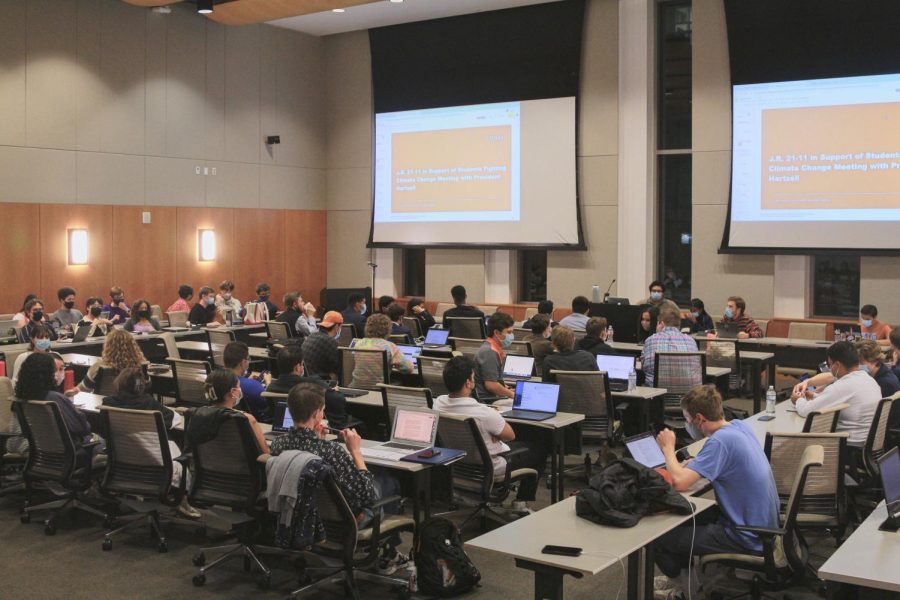Dean of Students’ office imposes new UT Senate bylaws, effective after election of new executives
March 3, 2023
The UT Senate bylaws, when legalized, will change membership and recruitment processes and only allow the legislative student organization to pass academic legislation based on the Office of the Dean of Students definition.
Senate president Echo Nattinger said this decision was made by the Office of the Dean of Students, headed by vice president Soncia Reagins-Lilly, without any University Senate leaders’ input. Nattinger said they were told about the changes last year and that they would be relatively minor, but the changes were much more drastic than expected, including changes to membership and recruitment.
The announcement came to Senate leaders right before recruitment efforts. The office told the organization to pause that process because of the unexpected changes, Nattinger said.
“Around April of 2022, we went to an LSO leader orientation,” Nattinger said. “We were told, ‘Over the summer, the Office of the Dean of Students is going to conduct a review of your governing documents.’ We asked at that time to be involved in that process. We were not informed of any changes until the week before school started.”
While there are no official documents yet, the University Senate was told that the changes proposed to them should be finalized before the new Senate President and Vice President are elected on March 9. The current Senate leaders were instructed to use the new guidelines.
“They handed us the documents and said while they’re not legally approved yet, you need to act like they are,” Nattinger said.
The Senate made several attempts to tell administrators that the new bylaws were causing them problems as individual entities and as a larger unit.
“They have told us that what we received back in August is most likely the same documents that will be approved,” said Senate vice president Sameeha Rizvi. “So nothing has been changed even after our discretion and experiences were shared.”
Senate has always focused on academic issues, said Rizvi, and she said recently they came to the understanding that administration has a different definition of that than the students.
“In our original documents, we had a clause that said Senate recognizes that academics are inherently affected by the intersectionality of identities,” Rizvi said. “Essentially allowing for that discussion and that advocacy to be brought up, that a lot of issues that students face are intertwined with both academic and student life experiences, and you cannot separate those two.”
Nattinger said the next Senate leaders may have to deal with even more and hopes that they will find a solution with the administration.
“My central hope for the next president and vice president of the Senate is that University administrators realize the pressure and stress that the past year has taken on the Senate as an institution and really work and value the opinion of my successor and Sameeha’s successor, because trying to navigate all of these changes on our own was really, really difficult,” Nattinger said.




